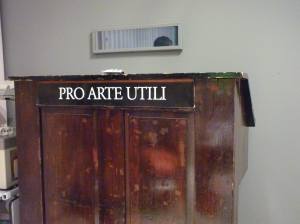Soon after the day continued with the Topic Stream #10, Data Journalism and Visualization. As every day, other topics are developed elsewhere at the same time, in a particularly rich and multifaceted programme. The subject naturally followed Farida´s introduction, with the well-known case study Reading the Riots on Twitter and the questions it left open:
“Who is and can be a journalist” in the era of Twitter? “Is Twitter open data?”
Data journalism is about “working across boundaries, sharing knowledge and skills, and we only begin to unlock its potential” (Farida Vis)
Simon Rogers, from the Guardian Datastore and Datablog, outlined a short and effective history of open data: as far as 1821, “six years before the introduction of compulsory education in the UK, the Manchester newspaper published the names and addresses of the schools of the town”, a respectably long “tradition of making data available”. This unfortunately “does not automatically makes a society more democratic, as in the case in Saudi Arabia”, where a certain amount of public data are online.
In the best British journalistic tradition “Facts are sacred”, and, as James Cameron said “It was long ago in my life as a simple reporter that I decided that facts must never get in the way of truth“.
What does a data journalist do? And a simple journalist? Both “investigate, research, write and report, engage, reveal and expose“.
Data journalism may also produce interesting data, under the form of interactive polls, collecting personal data: Poverty Line was a research conducted by The Guardian, investigating poverty rates in the UK.
Easily available online tools make nowadays journalism possible for everybody.
The last part of Rogers´relation was dedicated to the London Olympics, a challenge for the data journalism team: many infographic were produced, from the Olympics spending map, where one could clearly see where public and private money went, to Alternative medal table interactive, where the reader could choose among many sorting ways, from Team size to Population, to State vs private schools and so on. Many less evident aspects of the event were investigated this way.
“Do what you do best and link to the rest” is Jeff Jarvis’ motto for newsrooms: “to reorient newsrooms from a resource-rich, monopoly distribution approach to reporting, where a newsroom could reasonably aim to do it all themselves, to a resource-constrained, networked media reality, where newsrooms must focus on original reporting that matters most”, often with low costs.
All along the day Twitter provided a second dimension, under the hashtag #okddj. Unfortunately, every time a speaker asked the audience a question, I missed it, attention has its limits – a loss, addressing the audience directly is always a valuable way of keeping the communication alive. On the other hand some tweets clarified or amplified what the person was saying, adding useful information.
In any case here you can read the story of the day in tweets, collected and put online in a few hours´ space.

